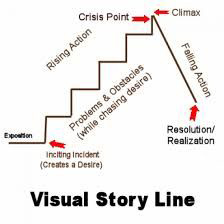For most of my novel writing career, I’ve been a Plotter. I would write pages and pages of notes before I started writing a novel—mostly to do with plot, but also to do with character development. It was my safety net, and I would not start my novel until I was sure I’d thought out every twist and turn (nuanced or obvious) and knew everything there was to know about my characters.
I’m happy to report that, more than a dozen published novels later, I’ve evolved into a Plantster. Which, for those of you who aren’t familiar with these terms, a Pantster is someone who writes by the seat of their pants without a detailed plan. A Plantster is a hybrid between a Plotter and a Pantster.
Now when I start a novel I only have a couple of pages of notes, and they’re more of a guideline rather than rules. I leave myself lots of room to play around, and I’m loving it.
When I write a certain scene, it will me ideas for another scene, and another scene after that. New avenues for my plot and characterizations seem to spring up out of the freshly tilled soil of my imagination. On little scraps of paper (which litter my desk), I’m still writing out ideas for a plot turn or for something I want a character to do as I go along, and this helps me from straying too far off track, or from not having something to focus on when I turn on my computer for a writing day.
But to a large degree, I’m freeing myself to let my characters inspire fresh ideas. I’m letting them say and do things organically. My biggest concern when I write a novel now is that my characters are coming alive on the page. That readers are invested in them and are engaged in the story from an emotional standpoint, because THAT is what makes a novel memorable.
I don’t recommend the Pantster lifestyle for writers still fairly new to the game. Experience and confidence are key to being comfortable with being a Plantster or Pantster. And if you struggle with writer’s block or with completing your writing projects, then definitely do NOT try being a Pantster. Plotting will keep you on track and writing through writer’s block. Detailed plotting is also more necessary if you’re writing thrillers, mysteries and sci-fi/fantasy.
But if you can get to a point of being a Plantster, I think you’ll find you have the best of both worlds, and your novel will be the better for it.